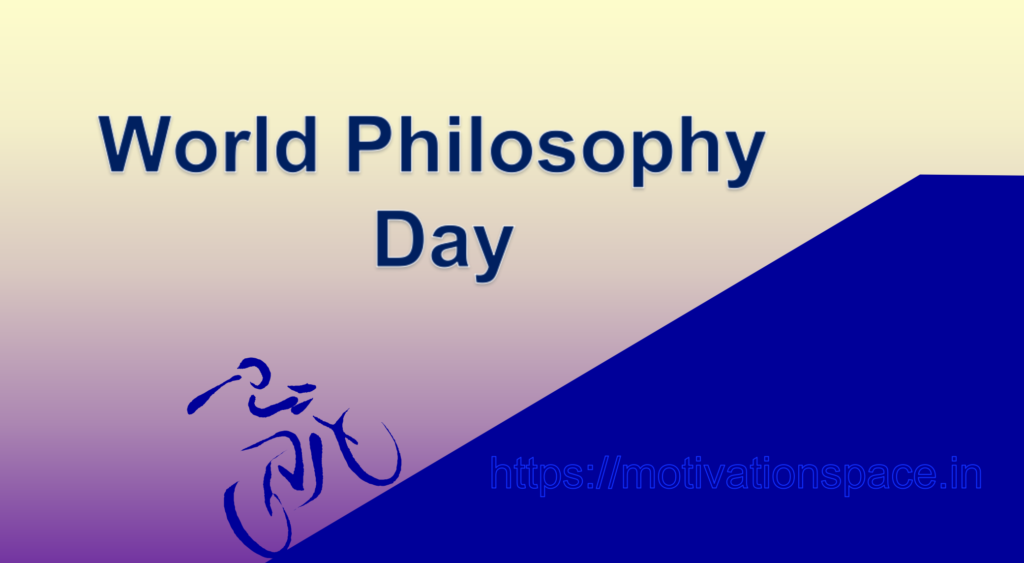Contents of this article
Every year on the third Thursday of November, the world celebrates World Philosophy Day, a day dedicated to the exploration and appreciation of philosophy’s profound impact on human thought, culture, and society. Established by UNESCO (the United Nations Educational, Scientific, and Cultural Organization) in 2005, this observance serves as an opportunity to reflect on the significance of philosophy, its contributions to human progress, and its relevance in addressing contemporary challenges. In this blog, we’ll delve into the essence of World Philosophy Day, its importance, and how philosophy has shaped our world with illustrative examples.
The Essence of World Philosophy Day
Philosophy as a Way of Life:
World Philosophy Day encourages us to recognize that philosophy is not just an academic discipline but a way of life. It’s about questioning the world, our beliefs, and our values, and striving for a deeper understanding of ourselves and the universe.
Promotion of Critical Thinking:
It underscores the importance of critical thinking and rational inquiry. Philosophy equips individuals with the tools to analyze complex issues, make informed decisions, and navigate the complexities of the modern world.
Universal Dialogue:
This day promotes open and inclusive discussions. Philosophy is a global endeavor, and World Philosophy Day fosters a universal dialogue, transcending borders and cultures.
Ethical Considerations:
Ethics is a cornerstone of philosophy. It encourages ethical reflection, highlighting the role of values and morals in decision-making. This is crucial for addressing ethical dilemmas in society.
Cultural and Intellectual Heritage:
Philosophy is an integral part of a nation’s cultural and intellectual heritage. Celebrating World Philosophy Day means recognizing the rich philosophical traditions of various regions and their impact on the world.
Importance of Philosophy in the Modern World
Ethical Decision-Making:
Philosophy offers tools for addressing complex ethical issues. For example, medical ethics draws heavily from philosophical principles when determining questions of life, death, and patient autonomy.
Political Philosophy:
Philosophical ideas have significantly influenced the development of political systems and ideologies. Thinkers like John Locke, Karl Marx, and John Rawls have shaped political thought and action worldwide.
Technology and Ethics:
With the rapid advancement of technology, philosophy plays a vital role in addressing ethical concerns. For instance, discussions on artificial intelligence and privacy are heavily influenced by philosophical considerations.
Environmental Ethics:
Philosophical thought informs our understanding of humanity’s relationship with the environment. Deep ecology and eco-philosophy offer philosophical foundations for addressing ecological issues.
Moral Philosophy:
Philosophers like Immanuel Kant and utilitarian thinkers have profoundly shaped discussions on morality, ethics, and human rights, which are pivotal in contemporary society.
Examples of Philosophy in Action
Medical Ethics:
Philosophical principles guide medical professionals when making difficult decisions, such as those related to end-of-life care, organ transplantation, and medical research involving human subjects.
Political Philosophy:
The concept of democracy, human rights, and the social contract theory, rooted in political philosophy, are foundational principles in modern governance.
Artificial Intelligence:
Ethical discussions on AI, including issues of bias, transparency, and accountability, draw from philosophical ethics, particularly utilitarianism, deontology, and virtue ethics.
Environmental Ethics:
Philosophical frameworks like deep ecology have inspired environmental movements and influenced policies to address climate change and biodiversity loss.
Philosophy of Mind:
Philosophers explore the nature of consciousness, perception, and the mind-body problem, which have implications for psychology, neuroscience, and artificial intelligence.
Conclusion for World Philosophy Day
World Philosophy Day is not just an occasion for philosophers and scholars but a celebration of the human quest for wisdom and a deeper understanding of our world. It reminds us that philosophy is not an abstract endeavor but a practical and essential tool in addressing contemporary challenges, shaping our values, and promoting critical thinking. From ethical dilemmas in medicine to political ideologies that influence governance, philosophy plays a pivotal role in our daily lives.
As we celebrate this day, let us recognize that philosophy is not a relic of the past but a vibrant, dynamic field that continues to shape the world and our place in it. It is a reminder that the pursuit of wisdom is an ongoing journey, and philosophical thought provides the compass for navigating the complexities of the modern age. Whether we are debating ethical dilemmas, pondering the nature of reality, or reflecting on the meaning of life, philosophy is there to guide us, encourage thoughtful discourse, and inspire us to strive for a better, more thoughtful world. You may drop a comment below or contact us for any query related to the contents of this website.


